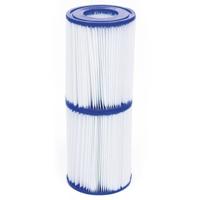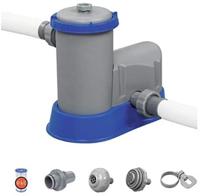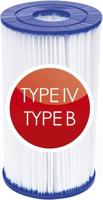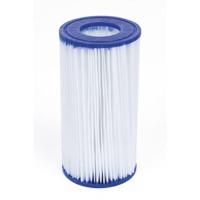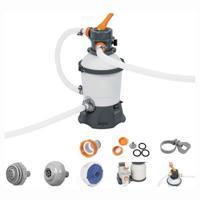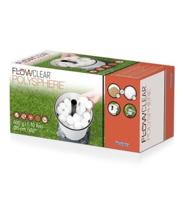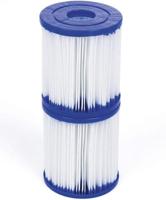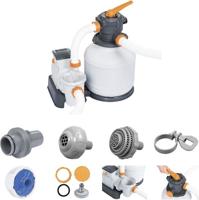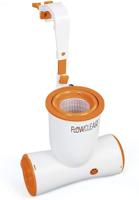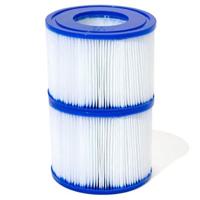
Swimming Pool Filters
About Swimming Pool Filters
Building a pool is only half the job. After that maintaining the pool is something that you have to do regularly as a pool owner. Having a good swimming pool filter will make it easy to keep the water clean and clear.
There are a lot of ways unwanted particles and debris can get inside pool water; water attracts pollen and dust from the air, leaves fall into the water, birds might drop things into the pool, microorganisms and algal will grow in the water. You only have to leave the pool untouched for a few days or a week before you notice a slight change in the colour of the water. Some of these contaminants not only make the water look bad, but they can also be very harmful to people using the pool. Read this article to know more about swimming pool filters.
Beginner’s guide to swimming pool filters
The heart of a swimming pool is a pump and filtration system. This system pumps the water, collects impurities, and lets the clear water flow back into the pool. This is necessary to keep the pool water clear. However, not all filtration systems are the same. There are a variety of filters to serve pools of different sizes and types of pools; be it above ground or in-ground. This article will tell you what you need to know about different types of pool filters. Having a better understanding of them will help you make the right choices when you are shopping for them.
Cartridge swimming pool filters
These filters are very simple and easy to use. And because it is easy to set up it is a great option for DIYers out there who do not want to get professional help for filter installation. The design of these filters is unique because of their narrow and tall design. One of these filters can have about fifty to five hundred square feet of filter surface area. As cartridge filters offer less resistance to the flow of water, the filtration process becomes many times faster than a typical sand filter. This, in turn, reduces the wear and tear on the pool filter pump as well.
D.E. swimming pool filters
DE is short for Diatomaceous Earth. You can always call it DE though. Diatoms are a type of microscopic algae that grows in the sea. DE is, therefore, a finely powdered form of the fossilised exoskeletons of dead diatoms. DE particles have numerous tiny holes that make them quite useful in the filtration process. Also, D.E. filters are more advanced than other types of filters in the market today. However, they also cost more than other filters. You should also make sure to clean the valves after using the D.E. filter because they tend to clog the valves because they are very fine powder.
Sand filters
People have been using sand for water filtration even in prehistoric times. Sand filters come as a tank that contains a vertical PVC pipe in the centre. This pipe extends to the bottom of the tank and goes into a manifold that contains lateral pipes with slots. It is this tank that contains the sand particles. However, the sand for filtration is not just any sand. The sand used in filters is a mixture of silica sand, zeolite, and filter glass. This combination is very effective and can even filter out human blood cells. The attractive thing about sand filters is that they can be quite cheap.
Top-mounted vs side-mounted filters
This difference is based on the position where the flange of the swimming pool valve attaches to the filter. In the case of a top-mounted filter, the flange attaches to the top of the filter. Such filters are more affordable because they are simpler and easier to manufacture. Another benefit of this type of filter is that you can align them with other equipment by rotating them. On the other hand, side mount filters offer higher flow rates. Because side-mounted filters offer more surface area pumps do not have to work as hard to get the water across.
Tips on how to buy Swimming Pool Filters
Swimming pools are not only expensive to build, but also cost to maintain. And one of the things that add to the cost of maintenance is the price you spend on swimming pool filters. Therefore, you should consider all different factors and find ways where you can reduce the cost of filtering the water. If you know what the things that affect the quality of filtration are, you can select a filter that does the job well without buying a costly one. Here are a few tips that you can choose to follow when you are shopping for them.
- Type of the filter – There are only three major types of swimming pool filters out there. Among these, the most advanced one is the Diatomaceous Earth filters. They are great at removing microparticles from water without restricting the flow too much. But you should also consider the cost of the filter when you are buying.
- Size of the filter – It is the size of the filter that determines what particles get filtered out and what particles pass through. In the ideal case, the filter should remove all unwanted particles in the water completely. However, there are some practical limitations that prevent us from achieving this. The practical thing to do is to look for the filter that can clean the water the most.
- Ease of use – Consider the way you are going to use the filter when you shop. Not all filters are easy to use without professional help. If you want something that you can use yourself without any difficulty, you can prioritise usability over other factors.
- The flow rate of the filter – Flow rate depends on things like the surface area of the filter and the type of it. The larger the surface area of the filter, the higher will be the flow rate. If the flow rate is higher, you wouldn’t have to run the swimming pool pump for a long time. This not only saves electricity but will save you time as well.
Apart from that, you need to consider the price of the swimming pool filters. And that you can easily do according to your budget! So, have you decided which pool filter you are going to buy? No! Then, hover over our vast collection of products from renowned brands. The best thing is that you can compare the prices and features of different swimming pools & jacuzzis . And find the best one among them. Finally, don’t forget to check out other amazing products from the sports & outdoor category while shopping with us.
Question & Answer
What is the swimming pool filter sand?
Sand is basically powdered rock. In the case of pool filter sand, it consists of a combination of different sand particles between the size of twenty and a hundred microns. Because not all particles in regular sand meet this criterion, manufacturers combine various components like silica, filter glass, and zeolite in a fixed proportion. This combination is much more effective than regular sand in filtering unwanted particles out of the water. However, the downside of using a sand filter for cleaning a swimming pool is that the flow rate is much slower than that of more advanced filters.
How long do swimming pool filters last?
Generally, with proper maintenance, a swimming pool filter can last for around ten years. But swimming pool filters consist of many different elements like the filtering particles, internal grids, band clamps, internal valves, and pipes. Depending on the salinity of the water, some of these parts can get corroded even before ten years. Therefore, you should check the O rings, air relief systems, gauges, and cartridges regularly to make sure that all of them are in working order. If anyone of them has any problem, the filter might not work well.
Is green pool water safe for swimming?
If not filtered regularly, it is common for pool water to turn slightly green. And if you keep it longer without filtration, it will turn to a deeper shade of green. The reason for the water to turn green can either be because of the growth of algae or because of pollen. So, is it really safe to swim if the pool water is green? Well, that depends. Even though the algae might not be dangerous to people, such algae attract the growth of other toxic bacteria. So, if the water has not been cleaned for a long time, then you should not swim in it.

